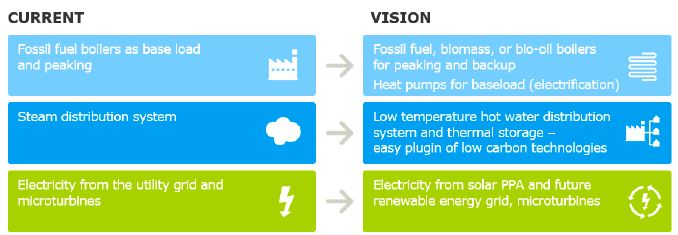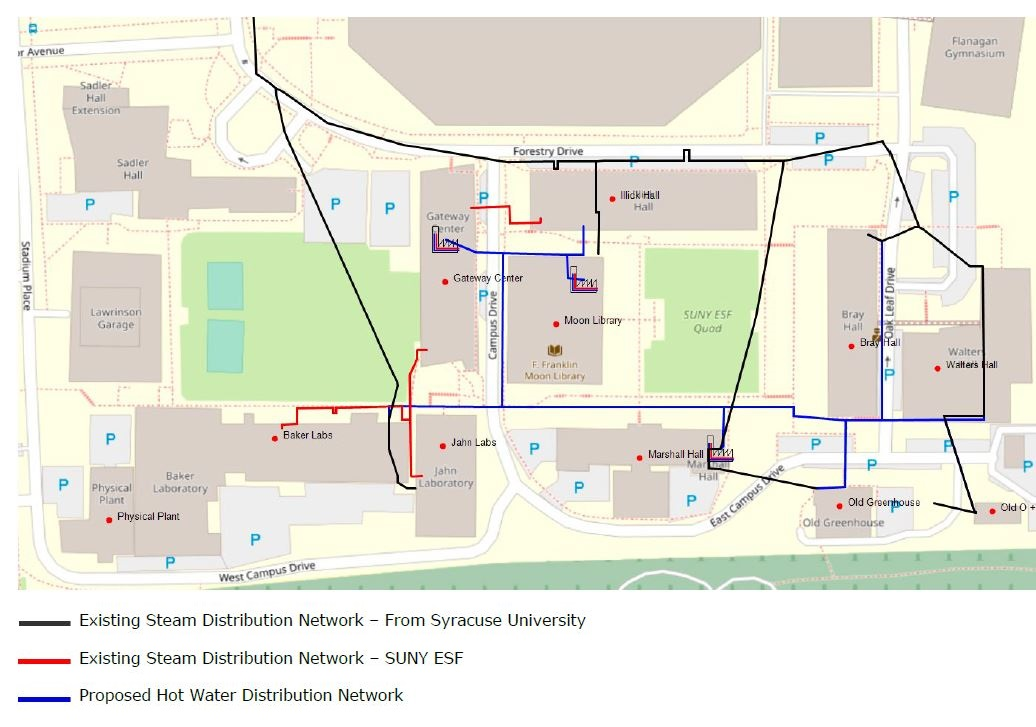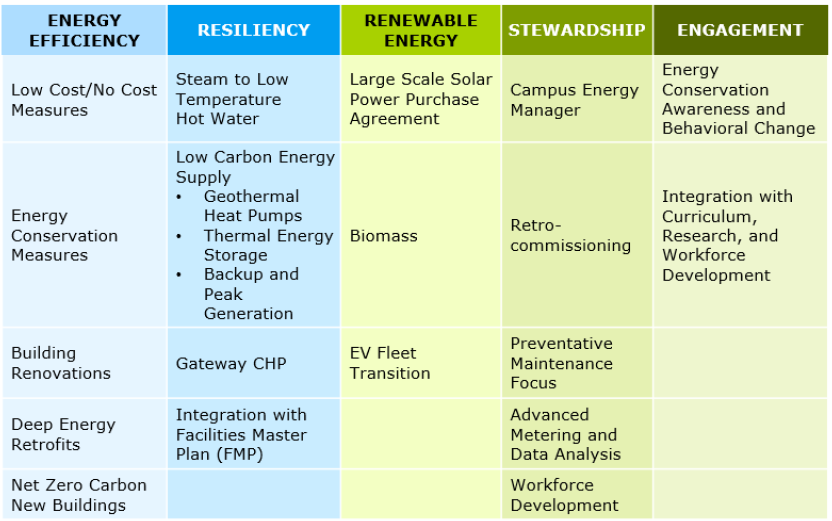Sustainability at ESF
Clean Energy Master Plan
In 2021, ESF completed the College's first Clean Energy Master Plan, in partnership with Ramboll, with funding support from the NYSERDA Reforming the Energy Vision (REV) Campus Challenge. The Clean Energy Master Plan lays out a vision for low carbon and renewable technologies and operational strategies to reduce fossil fuel use/dependency, increase electrification of utility operations, and maintain resiliency and reliability. This is accomplished with planned actions within 5 strategic focus areas of Energy Efficiency, Resiliency, Renewable Energy, Stewardship, and Engagement.

ENERGY EFFICIENCY
Energy efficiency and conservation measures often involve capital expenditures that
have short to moderate payback periods and are focused on driving near term reductions
in GHG emissions and EUI, sometimes referred to as “low hanging fruit”. Energy efficiency
projects can also be considered infrastructure renewal under major building renovations
or gut rehabilitation.
RESILIENCY
In our campus context, resiliency is the desire to decarbonize through reducing fossil
fuel use and increasing renewables and electrification. This includes both short-term
and long-term transition aspects, such as: completing building renovations to utilize
low carbon energy supplies, establishing energy storage, maximizing the use of the
Gateway Center's CHP assets, and maintaining backup and peaking capabilities to cover heating/cooling needs.
RENEWABLE ENERGY
Renewable energy centers ESF's desire to achieve GHG reductions by decreasing fossil
fuel use and increasing electrification of campus operations. This can be accomplished
by utilizing electricity generated by renewable sources and through with continued
use of biomass, where economically feasible.
STEWARDSHIP
Stewardship focuses on the human and physical capital needs of managing energy systems
to achieve and maintain peak performance.
ENGAGEMENT
Engagement focuses on the ways that ESF can integrate energy and sustainability into
the cultural fabric of the College.
One of the most exciting project ideas included in the Clean Energy Master Plan is to transition away from steam by building a campus-wide hot water distribution loop. This will make it easier to connect future clean energy generation sources such as geothermal, fuel cell, and biomass


